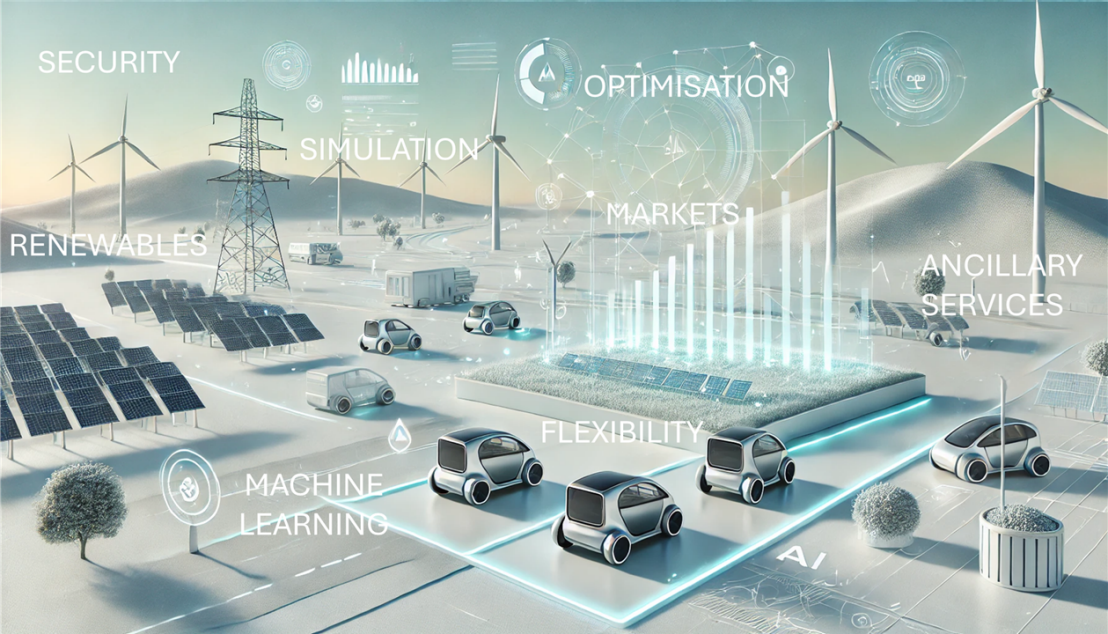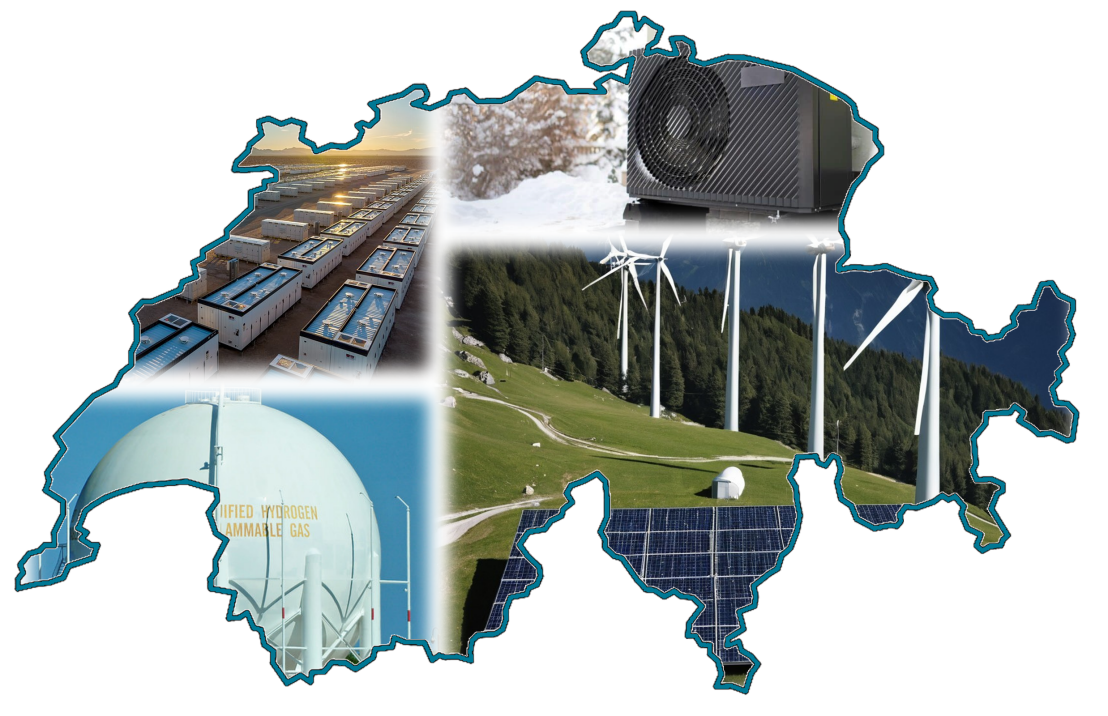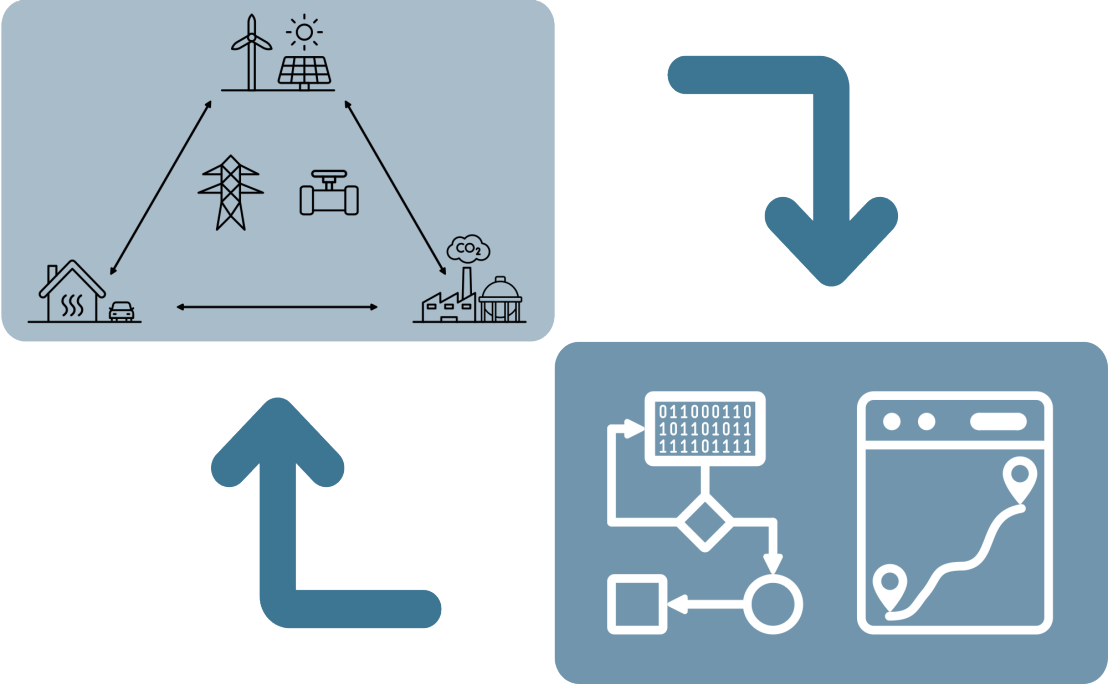Research Areas

At the RRE Lab, we conduct multi-disciplinary research at the intersection of energy systems, power systems, and advanced computational methods. Our research spans four key areas: power systems and machine learning, focusing on electric power grids and power markets; multi-scalar decision-making, exploring the complexity of decision-making from local to global level; Swiss energy transition, enabling and studying Switzerland’s optimal path to decarbonization; and macro energy transition, exploring pathways and policies for large-scale decarbonization.
Multi-scalar decision-making: from micro to macro
This stream of research aims to understand how energy systems are affected by individual decisions and decision-making paradigms. The decisions we consider range from individual consumer choices to geopolitical prioritization. The decision-making frameworks we consider include weighing short- versus long-term gains and complementarities between system design goals, such as affordability, reliability, security, and environmental and social impacts. We rely on various methods – including optimization, agent-based modelling, and statistical analysis – to understand the implications of these decisions and decision-making frameworks. Our group is always looking for new ways to understand energy systems – reach out to learn more and collaborate!
Power systems and machine learning

The transformation of modern power systems, driven by the evolving generation mix, presents significant challenges for grid stability, efficiency, and market operations. Our research addresses these challenges across four key areas. We develop models to assess failures in transmission grids, identify critical infrastructure, and design robust expansion strategies. We address the integration of distributed energy resources in power distribution grids, analyzing how their flexibility could be used for network expansion planning and ancillary services provision. Then, we study and model electricity markets to optimize bidding strategies, design new products, and assess market structures' impact on system security. Finally, we leverage advanced machine learning techniques to improve fault detection, uncertainty management, and optimization in energy networks.
Swiss energy transition

Decarbonizing Switzerland’s energy system is an ambitious challenge. Multiple factors must be considered simultaneously, including Switzerland's integration with Europe, its transition away from fossil fuels, global supply chain dynamics, and climate-related risks and uncertainties. To support a smooth transition, we address three system-level research areas: (1) integrating sustainable technologies and fuels; (2) ensuring resilience, security, and adequacy in the energy supply; and (3) advancing methods to provide robust solutions. We actively contribute to national research initiatives, including Reg4Fuels, SPEED2ZERO, and the SWEET consortia PATHFNDR, EDGE, and RECIPE, working toward science-informed guidelines that advise stakeholders and decision-makers.
Macro energy transition

This research path explores policies for transitioning to net-zero on a national scale and larger. We identify strategies to reduce sunk costs and mitigate risks when moving from today's system to a future driven by wind, solar, and net-zero fuels. For these analyses, we develop novel tools and quantitative models reflecting the characteristics and risks of net-zero systems.
Further competences
Through current and past research projects RRE has developed further vertival competences in different areas, here some examples. Get in contact with us know more if interested.
- Multi-energy distribution systems
- Optimal planning of reliable microgrids
- Transition optimization to active distribution grids
- Future interdependent systems
- Water-energy nexus
- Optimal design of carbon and hydrogen supply chains
- Insurability risk assessment of oil refineries
- Cascading failures in power systems
- Fault detections, diagnostics, and prognostics of power grid assets
- Optimizing for resilient critical infrastructures